第23章 V. (6)
Secondly, That he acquired in Consequence thereof no greater Right than what was in the Confessor, to whom he pretended a Right of Succession; and therefore could no more alter the Laws of the Kingdom upon the Pretence of Conquest, than the Confessor himself might, or than the Duke himself could have done, had he been the true and rightful Successor to the Crown, in Point of Descent from the Confessor; neither is it material, whether his Pretence were true or false, or whether, if true, it were available or not, to entitle him to the Crown; for whatsoever it was, it was sufficient to direct his Claim, and to qualify his Victory so, that the Jus Belli thereby acquired could be only Victoria in Regem, sed non in Populum, and put him only in the State, Capacity and Qualification of a Successor to the King, and not as Conqueror of the Kingdom.
Thirdly, And as this his antecedent Claim kept his Acquest within the Bounds of a Successor, and restrained him from the unlimited Bounds and Power of a Conqueror; so his subsequent Coronation, and the Oath by him taken, is a further unquestionable Demonstration, that he was restrain'd within the Bounds of a Successor, and not enlarged with the Latitude of a Victor; for at his Coronation he binds himself by a solemn Oath to preserve the Rights of the Church, and to govern according to the Laws, and not absolutely and unlimitedly according to the Will of a Conqueror.
Fourthly, That if there were any Doubt whether there might be such a Victory as might give a Pretension to him, of altering Laws, or governing as a Conqueror; yet to secure from that possible Fear, and to avoid it, he ends his Victory in a Capitulation; namely, he takes the ancient Oath of a King unto the People, and the People reciprocally giving or returning him that Assurance that Subjects ought to give their Prince, by performing their Homage to him as their King, declared by the Victory he had obtain'd over the Usurper, to be the Successor of the Confessor: And consequently, if there might be any Pretence of Conquest over the People's Rights, as well as over Harold's, yet the Capitulation or Stipulation removes the Claim or Pretence of a Conqueror, and enstates him in the regulated Capacity and State of a Successor. And upon all this it is evident, That King William I could not abrogate or alter the ancient Laws of the Kingdom, any more than if he had succeeded the Confessor as his lawful Heir, and had acquir'd the Crown by the peaceable Course of Descent, without any Sword drawn.
And thus much may suffice, to shew that King William I did not enter by such a Right of Conquest, as did or could alter the Laws of this Kingdom.
Therefore I come to the last Question I proposed to be considered, viz. Whether de Facto there was anything done by King William I after his Accession to the Crown, in Reference either to the Alteration or Confirmation of the Laws, and how and in what Manner the same was done: And this being a Narrative of Matters of Fact, I shall divide into those Two Inquiries, viz.
1st. What was done in Relation to the Lands and Possessions of the English: And 2dly, What was done in Relation to the Laws of the Kingdom in general; for both of these will be necessary to make up a clear Narrative touching the Alteration or Suspension, Confirmation or Execution of the Laws of this Kingdom by him.
First, Therefore touching the former, viz. What was done in Relation to the Lands and Possessions of the English. Those Two Things must be premised, viz. First, a Matter of Right, or Law;which is this, That in Case this had been a Conquest upon the Kingdom, it had been at the Pleasure of the Conqueror to have taken all the Lands of the Kingdom into his own Possession, to have put a Period to all former Titles, to have cancelled all former Grants, and to have given, as it were, the Date and Original to every Man's Claim, so as to have been no higher nor ancienter than such his Conquest, and to hold the same by a Title derived wholly from and under him. I do not say, that every absolute Conqueror of a Kingdom will do thus, but that he may if he will, and have Power to effect it.
Secondly, The Second Thing to be premised is, a Matter of Fact, which is this; That Duke William brought in with him a great Army of Foreigners, that would have expected a Reward of their Undertaking, and therefore were doubtless very craving and importunate for Gratifications to be made them by the Conqueror.